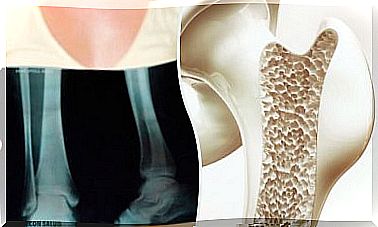Ginger, Medicinal And Gastronomic Uses
Ginger is a South Asian plant that is currently grown in tropical regions and can be found in the wild on many islands in the Caribbean.
Medicinal properties are attributed to it and it is also widely used in gastronomy.
Next, know the properties of ginger, its benefits for your health, and how to prepare it.
Medicinal properties of ginger
Benefits for digestive function
The benefits of ginger on the digestive system is one of its most popular functions.
- Stimulates the function of the pancreas. Increases the production of pancreatic enzymes that intervene in digestion and improve the absorption of food.
- Helps prevent intestinal problems. Due to its antibacterial power it avoids alterations in the intestinal flora.
- It is a very effective antivomitive. Combat nausea, for example during trips and long journeys, after chemotherapy, in pregnant women and post-operatively.

- Treat ulcers. Due to its antibacterial power, it eliminates the Helicobacter Pylori bacteria , helps treat gastritis and neutralizes excess gastric acid.
- Control diarrhea and constipation. Eliminates harmful microorganisms such as E. Coli bacteria that cause diarrhea in children, and also gastroenteritis. It in turn increases intestinal peristalsis, which favors the expulsion of excrement, in the case of constipation.
Read also 11 medicinal plants for stomach pain
Benefits for the circulatory system
Ginger promotes blood circulation and this helps prevent cardiovascular diseases.
- It prevents heart diseases such as heart attacks, thrombosis, angina pectoris and clots.
- It favors circulation in the extremities. Mainly, it eliminates leg pain or finger symptoms from Raynaurd’s disease. It also helps in the regeneration of tissues in the case of freezing of the limbs or in wounds.

Other medicinal benefits of ginger
- It is a powerful anti-inflammatory and pain reliever. It is used in cases of arthritis, atrosis or joint pain, as well as inflammation from blows. Relieves pain and reduces inflammation.
- It is useful against flu symptoms. Helps reduce fever, nasal congestion, joint pain due to the general flu-like state.
- In the case of colds, it eliminates the pressure on the chest due to the accumulation of mucus. The same for those who suffer from sinusitis or stuffy nose.
- Treats chronic fatigue, a very common problem is Chronic Fatigue Syndrome, where the person is always tired or without strength even when sleeping or resting.
External uses of ginger
- Relieves toothache. A little ginger tea liquid is applied directly to the jaw or a very thin slice is chewed.
- Eliminate bad breath or halitosis. It refreshes the mouth after a meal, and it also serves to treat dry mouth as it increases saliva production.

Ginger root
Ginger root can be consumed fresh, and you can apply it in the following ways:
- The root is washed well and peeled. Then, the pulp is minced to add to stews, sauces or soups, where it is cooked.
- You can also soak the dried root in water, broth or juice and add it to your recipes.
- The root is preserved in vinegar, also with sugar, salt and vinegar or oil.
- You can also consume the ground root with sweets, curries, stir-fries, desserts and sauces.
- You can consume it crystallized or candied. You cook the peeled and diced root for 30 minutes with water, drain it in a pot, and bring it to a boil with three tablespoons of water and sugar in equal amounts. Cook until the liquid evaporates.
Ginger infusion
One of the most common ways to consume ginger is as an infusion. You should know that its flavor is a bit spicy.
Ingredients :
- 85 grams of ginger approximately
- 700 ml of water
- Sweetener to taste, it can be stevia, honey, maple syrup or brown sugar.
preparation:
- Wash and drain the plant well or just the root
- Peel and cut into thin slices
- Boil water and add the ginger
- Let it cool for 5 minutes
- Strain the mixture
- Drink the infusion
Many add a few slices of lemon or juice, for when they have a cold.
As in all cases and uses of natural products, you must bear in mind that they may have contraindications, so it is always advisable to consult a specialist before consuming it.









